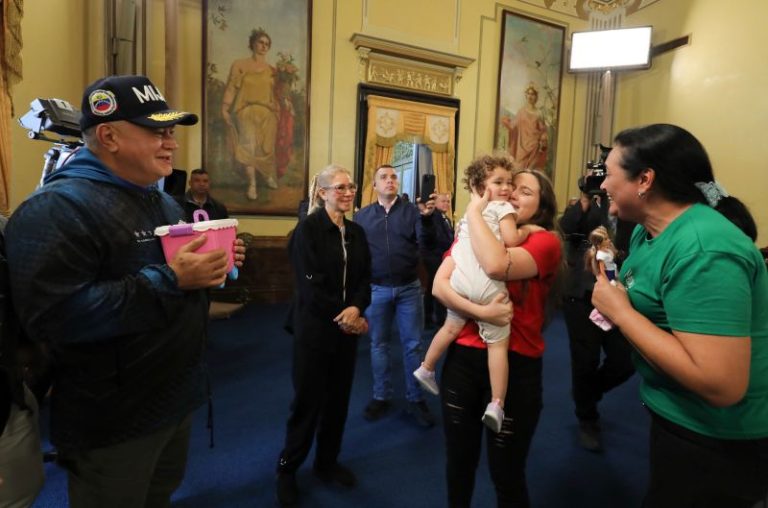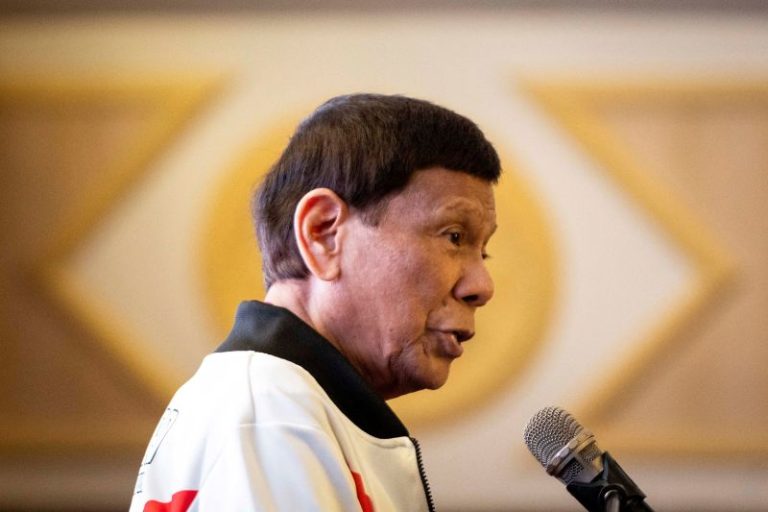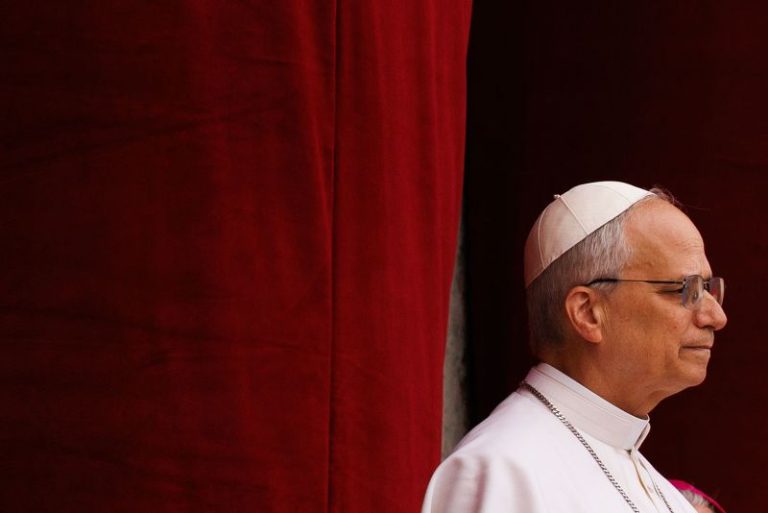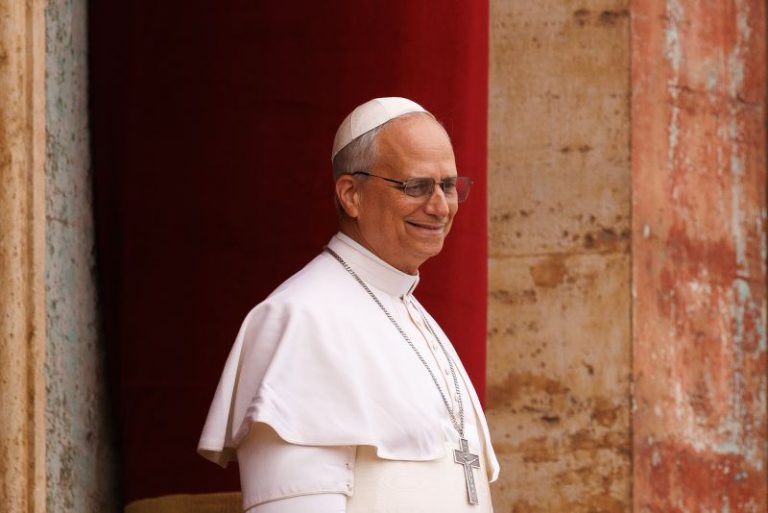As a missionary and bishop in Peru, the future Pope Leo came face-to-face with one of the most serious and far-reaching scandals in the church in Latin America.
For years, there were allegations of abuse within the hugely influential Catholic society Sodalitium Christianae Vitae (SCV), which had deep ties to Peru’s powerful and wealthy.
The scandal came to a head in 2015, the year after Leo, then known as Robert Prevost, was appointed bishop in the northern city of Chiclayo. A book written by one of the victims, Pedro Salinas, with journalist Paola Ugaz, “Half Monks, Half Soldiers,” described alleged beatings, humiliation and sexual assault in stark detail from 30 anonymous victims that enflamed the country.
When Oscar Osterling formally joined SCV in 1992, he was instructed not to tell his parents about his loyalty oath – a secrecy that appealed to the then-teenager. He would go on to spend more than two decades with SCV, only breaking out in his mid-thirties as the first allegations began to surface.
Founded in 1971 in Peru as a lay group, the Sodalitium was politically driven as a fight back against the rise of liberation theology in Latin America, a radical movement which began in the 1960s and focused on supporting the poor. The society controlled several communities and ran religious schools in the southern part of the country, its members and students mostly drawn from the country’s elite.
At one point, SCV had 20,000 members across South America and parts of the United States – and went on to develop strong ties with Denver and Colorado, including links with conservative Catholic media.
But hearing the others’ accounts, Osterling says he realized the strangeness of his own experience; he alleges that Figari would film him and other young converts standing in their underpants in the middle of the night during a spiritual retreat.
“In my case it did not escalate to a full sexual assault,” he says. He now believes he and his cohort were being groomed.
While dozens of young Peruvians have alleged they were victimized or bullied by Figari and other senior members of SVC, the topic remains taboo in ultra-Catholic Peru, and only a few have chosen to make details of their allegations public.
Prevost, who lived in Peru as a missionary in the 1980s and the 1990s, would have heard about these accounts while serving as Bishop of Chiclayo starting in 2014, especially following the publication of Ugaz and Salinas’ bombshell book.
Ugaz and Salinas also accused José Antonio Eguren, an archbishop in the coastal diocese of Piura – where Prevost worked as a young priest and which neighbors his diocese of Chiclayo – of protecting the SCV despite knowing about alleged abuses within it.
Eguren fought back with a defamation lawsuit alleging this was untrue and harmed his honor and reputation, though he later dropped the case.
According to Ugaz, who has faced a long campaign of legal actions and death threats around her reporting on the Sodalitium case, she received a message of solidarity during this time from Prevost and two other bishops.
In 2017, a probe ordered by SCV revealed stunning allegations. The group, which had already begun a series of internal disciplinary actions, found that Figari sodomized his recruits and forced them to fondle him and one another. He liked to watch them “experience pain, discomfort and fear,” and humiliated them in front of others to enhance his control over them, the report alleged.
The next year, more than a dozen alleged victims of the SCV from across Peru, Brazil, Colombia and Costa Rica, held a meeting with five high ranking prelates at the Peruvian Episcopal Conference in Lima. Prevost was one of the meeting’s organizers; according to Ugaz, he acted as a “bridge” between the victims and the SCV and helped secure financial settlements.
When the meeting finally took place, Orbegozo recalls, “Prevost recognized me immediately. ‘You are the guy from the email!’ he told me.” “He wanted to know everything about our correspondence …and showed real empathy,” Orbegozo said.
Osterling and Ugaz recall that the bishops they met agreed to write a letter to the Vatican, pushing to investigate the alleged crimes and asking for the personal involvement of then-Pope Francis. But higher church officials declined to move the case forward.
Ugaz, who first met Prevost in 2018 and remained in contact with him, said the stalled outcome of the meeting caused Prevost “great frustration” although she added “his character is not one to burn down the house. He accepted what had happened, made his frustration clear.”
Though that meeting initially seemed to lead to little, Orbegozo and Osterling believe it was the first crack in a wall destined to crumble.
“(Prevost) knew — he knew about many things — but he couldn’t act because he had people above him. So much so, that as soon as he could, he did — when they made him prefect,” says Osterling.
Everything seemed to accelerate in early 2023 after Prevost was named prefect of the influential Dicastery of Bishops – a role that suddenly catapulted him into a much more powerful position than the archbishop next door in Piura.
The job gave him a crucial role in the appointments and oversight of bishops, holding regular meetings with fellow cardinals and Pope Francis to discuss episcopal nominations.
It’s hard to say exactly what happened in the halls of the Vatican after Prevost moved to Rome. But the next year, two top investigators from the Vatican were finally sent to Lima to establish what had happened within SCV – a probe that led to the expulsion of 14 members of the society, including Figari.
Archbishop Eguren also resigned in April 2024 at the age of 67 – several years before the normal retirement age of 75 – without specifying the reasons.
Eguren has denied Prevost’s involvement in his resignation, emphasizing that he offered his resignation directly to Pope Francis. After stepping down, the archbishop also said in a statement that he rejected Ugaz and Salinas’ allegations, and had “sought to fulfil the mission entrusted to me with justice, honesty, and fidelity to the teachings of the Church, with special concern for the well-being of the poorest and most needy.”
Another expelled member was Alejandro Bermúdez, founder of the Denver-based Catholic News Agency, who was found by the Vatican investigation to have committed “abuse in the exercise of the apostolate of journalism.”
Bermudez, known for a combative style on social media, has countered that he was kicked out for simply “telling the truth.” More recently, he worked as a contractor with “Catholic Vote,” an organization which sought to bolster support for US President Donald Trump in the 2024 election. (The group’s president Brian Burch is President Trump’s pick to be the next US Ambassador to the Holy See.)
The Sodalitium still retained powerful supporters. Following the news of the expulsions, the Archdiocese of Denver said it was “shocked and saddened” while an adviser to a former Archbishop of Denver wrote that “something is deeply wrong” with the “Rome’s latest treatment of the SCV (Sodalitium).”
Nevertheless, in early 2025, then-Pope Francis went even further, taking the very rare step of suppressing the society entirely.
The move was formally decreed on April 14 – just a week before Francis died. Afterwards, the SCV released a statement asking “forgiveness from the entire Church and society for the pain caused” and “forgiveness for the mistreatment and abuse committed within our community.”
Prevost has been accused of mishandling abuse allegations in two other cases, in Chicago and in Chiclayo, Peru. But in the case of the SCV, Ugaz says she is certain that Prevost “took action” to help ensure the Sodalitium was dissolved. She and Salinas met with him in the Vatican in October 2024, and she says he arranged their meeting with Pope Francis two months later.
After years of fighting to be heard, Osterling says he never lost his Catholic faith – but that Francis’s eventual crackdown reinvigorated it.
As Francis’ successor, Pope Leo seems to have left little doubt about his stance on the end of SCV. A few days after his election, Leo was photographed greeting Ugaz with a broad smile, as she handed him a box of chocolates and a Peruvian scarf from the country he called home for years.
This post appeared first on cnn.com





